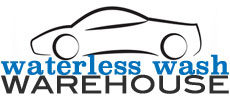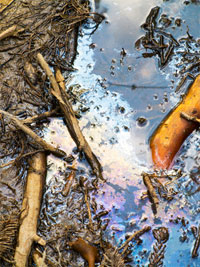 We know that polluted water is a problem and that it affects our health and the health of the planet, but how exactly?
We know that polluted water is a problem and that it affects our health and the health of the planet, but how exactly?
What are the Causes of Water Pollution?
Some of the top causes of water pollution include industrial waste that contains toxic chemicals, marine dumping, sewage, chemical fertilizers and pesticides and even air pollution.
However, there are numerous sources of water contamination that we don’t give much thought to, including washing out cars.
In fact, according to Wild Blue Car Wash, “Residential car washing is one of the leading sources of water waste in this country, especially during the summer months.”
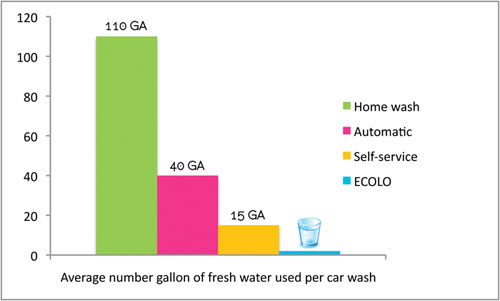
This chart shows how much fresh water is actually wasted when someone washes a car at home vs at a car wash. I was surprised to find out that an average at-home car wash uses approximately 120 gallons. That’s about the same as a 11-12 minute shower!
What are the Effects of Water Pollution?
The Global Development Research Center states that water pollution can result in poisonous drinking water, plus animals that humans consume also accumulate these toxins which we then eat. Contaminated water also has a significant impact on the ecosystems of lakes and rivers, plus acid rain can cause deforestation.
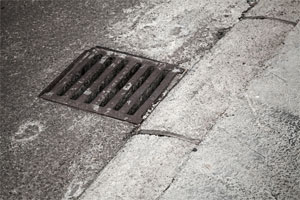 Stormwater run-off is another environmental concern. Essentially, this is the water from rain or melting snow. According to the Mid-America Regional Council, stormwater picks up pollutants as it flows down rooftops, paved streets, sidewalks and parking lots, across bare soil, through lawns and down storm drains.
Stormwater run-off is another environmental concern. Essentially, this is the water from rain or melting snow. According to the Mid-America Regional Council, stormwater picks up pollutants as it flows down rooftops, paved streets, sidewalks and parking lots, across bare soil, through lawns and down storm drains.
Storm drains are different from sewer systems in that the water is not treated. Once this water reaches streams and lakes, it can damage or kill the plants and animals living in those waterways.
When we wash our cars in our driveways, that water is heading straight into the storm drain where the soap, chemicals, oils and other debris will flow directly into nature’s waterways.
More Water Contaminants…
The State of Washington Department of Ecology provides a best management practices manual for vehicle and equipment wastewater discharges. It reveals that vehicle wash water may contain more than just oil, grease and detergent pollutants. It may also have heavy metals.
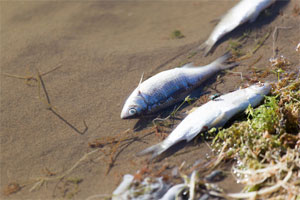 Furthermore, detergents contain emulsifiers. These break down oil particles to effectively clean the vehicle. However, these emulsifiers can hurt the marine plants and animals.
Furthermore, detergents contain emulsifiers. These break down oil particles to effectively clean the vehicle. However, these emulsifiers can hurt the marine plants and animals.
And if that wasn’t enough, many of these same detergents contain phosphorous and nitrogen. In high “doses”, these ingredients can cause excess weed and algae growth in lakes, rivers and streams.
The New Hampshire Department of Environmental Services is so concerned about car wash water pollution that they put out a fact sheet specifically relating to community fundraiser car washes. They encourage groups to hold events at commercial car wash facilities. Alternatively, they could use a catch basin or have wastewater pumped by a licensed septage hauler (instead of washing cars in parking lots with water run-of going down storm drains).
They also recommend that organizations use minimal soap and that cleaners be biodegradable and phosphate free, not to mention non-toxic. The Illinois Environmental Protection Agency publicly shares the same concerns.
Water Pollution Effects on Human Health
Let’s go beyond plant and animal life. The EPA put out a Bulletin that really got my attention. It’s titled, “Managing Vehicle Washing to Prevent Contamination of Drinking Water“. It states that contaminants can cause a variety of health effects, including kidney damage, circulatory system damage, increased cancer risk and delays in physical and mental development.
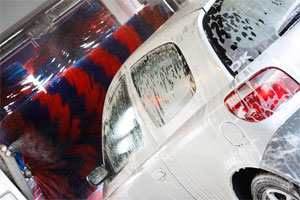 Chris Brown, who is a Water Conservation Consultant, wrote “Water Conservation in the Professional Car Wash Industry”, which was then published by the International Carwash Association. This report confirms the growing awareness on the washwater pollution problem. It states that the reclamation program has been in effect and advancing in sophistication for more than 30 years.
Chris Brown, who is a Water Conservation Consultant, wrote “Water Conservation in the Professional Car Wash Industry”, which was then published by the International Carwash Association. This report confirms the growing awareness on the washwater pollution problem. It states that the reclamation program has been in effect and advancing in sophistication for more than 30 years.
As part of using reclaim systems, professional car washes also incorporate several separation, oxidation and filtration techniques in order to re-use the water effectively and efficiently.
Of course, people who wash their own cars in their driveways don’t use these advanced reclamation techniques. In addition, in-bay and self-serve car washes also cannot incorporate all of these water conservation strategies.
What’s the Solution to Water Pollution?
Car wash water pollution is a serious and important issue. More environmentally conscious companies are jumping on the bandwagon to provide easy-to-use, eco-friendly car wash products that are affordable too. That’s good news!
The next step is to let consumers know that these waterless car wash products are available. These products are easy to use, and they cost less money. Please help spread the word so that we can reduce the effects of water pollution!
